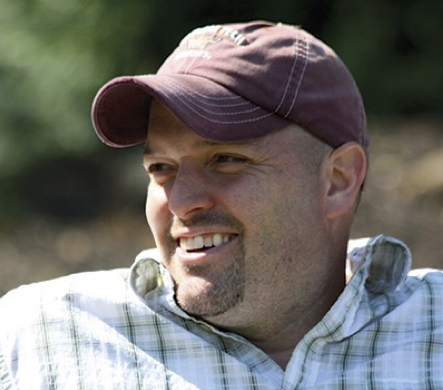People You Should Know: Ryan Reed

Ryan Reed: Deputy Zoning Administrator, Loudoun County Department of Planning and Zoning
Friends of the Blue Ridge Mountains has been focused on Loudoun County zoning issues for a long time. After years of study, debate, analysis and public hearings, the Board of Supervisors (BOS) adopted a comprehensive new zoning ordinance only 10 months ago (12/13/2024).
FBRM, along with many other conservation and environmental organizations was an active participant in developing the new ordinance. Early in the process, the BOS made a deliberate decision not to address many of the difficult and controversial issues associated with increasing development pressures in western Loudoun including the Blue Ridge Mountains, opting instead to address those issues separately after the new zoning ordinance was adopted.
Now, the BOS has authorized a zoning amendment specifically to address zoning issues in Western Loudoun.
In many ways this zoning amendment – technically known as Zoning Ordinance Amendment (ZOAM) 2024-0002 – is more important to the Blue Ridge Mountains and the interests of Western Loudoun County than the ordinance adopted in December 2023. This ZOAM will deal specifically with the Mountain Overlay District (MOD) and with a number of issues impacting the mountains including outdoor recreation facilities and the operation of vineyards and breweries. It will establish the ground rules for development – or restrictions on development – in the west for decades to come.
The Planning and Zoning Department has prepared, and the BOS has approved, a three-year work plan to draft the new ZOAM with a target date of April 2027 for Board adoption. The work plan includes a complicated, multi-step process for the Transportation and Land Use Committee (TLUC) of the Board to hold six meetings between November 2024 and October 2025 for public input to the ZOAM. This process was described in detail in the 10/3/2024 edition of Happenings Around the Blue Ridge.
Ryan Reed, one of two deputy zoning administrators in the Department of Planning and Zoning will be a key staff person in developing the ZOAM, as he was in the drafting the zoning ordinance adopted last December.
Ryan brings a unique background and perspective to zoning.
Prior to joining Loudoun County, Ryan was a soil scientist and forestry consultant. He was employed by a forest management consulting firm as a project soil scientist. He led a soil mapping team and was responsible for mapping over 60,000 acres of production timber property to National Cooperative Soil Survey standards.
Ryan has a master’s degree in soil chemistry and mineralogy from Virginia Tech, where he also earned a bachelor’s degree in environmental science and a Certificate in Local Government Management.
Ryan began with Loudoun County in January 2002 as the assistant county soil scientist. He is a licensed Professional Soil Scientist (LPSS) and a licensed Alternative Onsite Soil Evaluator (AOSE) in Virginia.
He was twice elected as president of the Virginia Association of Professional Soil Scientists (VAPSS).
In Loudoun County, Ryan became County Soil Scientist and then became the Natural Resources Team Leader for the Department of Planning and Zoning. He was the team leader for over 13 years and responsible for administrating the County environmental policies regarding sensitive environmental resources. He helped re-write the regulations for the limestone overlay district and for the flood plain overlay district.
Ryan is also staff liaison to the Zoning Ordinance Committee (ZOC). The current work plan calls for the draft Western Loudoun ZOAM to be sent to ZOC for review January to April 2026.
In a recent conversation, Ryan explained that originally the Mountain Overlay District (MOD) was simply defined as everything above an elevation of 550 feet in the Catoctin range and everything over 700 feet on Short Hill. However, over time it became clear that there were some areas below these elevations that needed extra protection against development because of steep slopes, shallow soils or related characteristics. At the same time there were areas above these elevations that do not require special attention. The County now defines the MOD on the basis of six (6) criteria: elevation, soil, vegetation, slippage, slope and ground water re-charge ability.
Ryan lives with his family on the Blue Ridge in Clarke County not far from the Shenandoah River. Two of his three daughters are on travel soccer teams, and they spend a great deal of their free time traveling to games. When the soccer schedule permits, the Reed family spends time canoeing and kayaking on the Shenandoah.
For about eight years during and after college Ryan was a contract professional speaker with Monster Education Foundation. He concentrated on teaching high school students how to study and how to set themselves up for success in life.
This one in a series of occasional articles highlighting the people whose decisions, activities or jobs directly impact the way in which we enjoy, use, celebrate and protect our wonderful Blue Ridge Mountains.

Leave a Reply
Your email is safe with us.